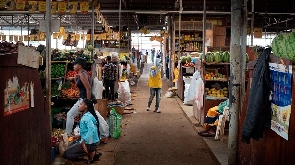The European Union (EU) has announced $106 million in aid to help Rwanda combat rising food insecurity that has affected the majority of the country's poor.
Launched on Tuesday, the aid will be used in 14 projects to mitigate soaring food prices across the country, under the new "Kuhangara" initiative.
"These projects come on the back of higher consumer price indices with about 20.6 percent of Rwandan households remaining food insecure according to the 2021 Comprehensive Food Security and Vulnerability Assessment report," the EU said in a statement.
"The Kuhangara projects will promote sustainable food production, inclusive agricultural value chains, and targeted interventions in vulnerable communities."
Figures by the National Institute of Statistics Rwanda show that in September 2023, 'Food and non-alcoholic beverages' increased by 29.6 percent on an annual basis and increased by 9 percent every month.
Rwanda is one of the top ten countries that have been hit hardest by the global rise in food prices, according to the World Bank.
This is due to external factors such as increasing energy and fertilizer prices and the Ukraine-Russia war, as well as long-lasting disruptions to cross-border trade with its neighbours Uganda, the Democratic Republic of the Congo, and Burundi.
The country also experienced a staggering domestic decline in food production in 2022, with food crop production experiencing a 2 percent decline and a 5 percent decline in the second agricultural season, according to the World Bank.
Rwanda's poor households are the most affected, with low-income households spending more than a third of their annual budget on food.
"The current inflation pattern is also highly regressive, affecting the poorest households the most," the World Bank says.
"Historically, in response to high food inflation and other economic shocks, 72 percent of Rwandan households have reported buying less food, leading to lower nutritional intakes, particularly for the most vulnerable families."
Earlier this month, Rwanda's Minister of Agriculture, Ildephonse Musafiri, told parliament that idle plots of arable land will be temporarily offered to farmers in one of the moves aimed at increasing food production.
Africa News of Tuesday, 31 October 2023
Source: theeastafrican.co.ke

















